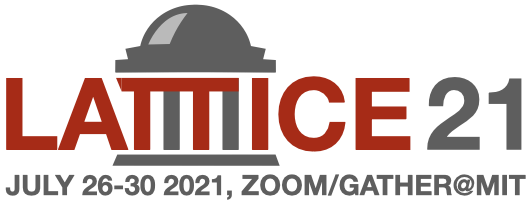Speaker
Description
In recent years, the use of machine learning has become increasingly popular in the context of lattice field theories. An essential element of such theories is represented by symmetries, whose inclusion in the neural network properties can lead to high reward in terms of performance and generalizability. A fundamental symmetry that usually characterizes physical systems on a lattice with periodic boundary conditions is equivariance under spacetime translations. In this talk we investigate the advantages of adopting translationally equivariant neural networks in favor of non-equivariant ones [1]. The system we consider is a complex scalar field with quartic interaction on a two-dimensional lattice in the flux representation, on which the networks carry out various regression and classification tasks. Promising equivariant and non-equivariant architectures are identified with a systematic search. We demonstrate that in most of these tasks our best equivariant architectures can perform and generalize significantly better than their non-equivariant counterparts, which applies not only to physical parameters beyond those represented in the training set, but also to different lattice sizes.
[1] ``Generalization capabilities of translationally equivariant neural networks'', S.~Bulusu, M.~Favoni, A.~Ipp, D.~I.~Müller, D.~Schuh,
https://arxiv.org/abs/2103.14686




